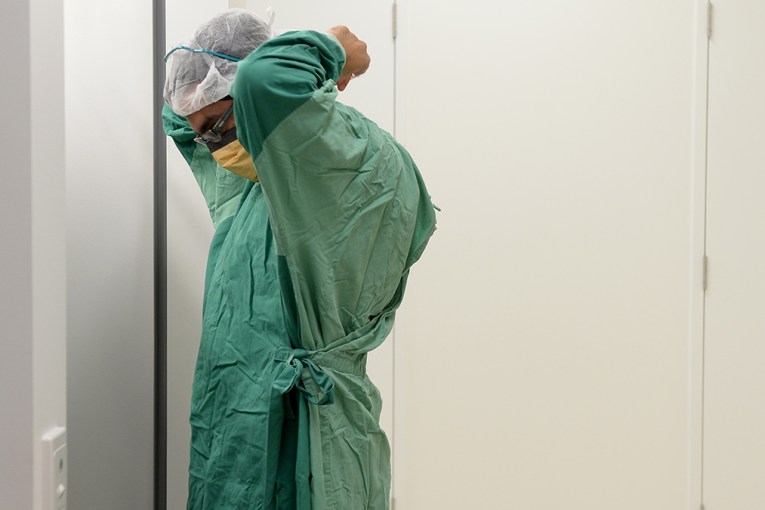Tsiolkas: A direct hit

Before The Slap, whenever Melbourne author Christos Tsiolkas’ mother went to her local deli, people would ask after his brother and his kids. After the immense success of his hugely popular fourth novel, and the genuine water cooler moments delivered by the ABC TV series that followed, that all changed. Suddenly people were asking after him.
“That’s a particularly wog experience,” Tsiolkas (pronounced chol-kas) laughs.
While the critical and popular acclaim brought with it an economic security that Tsiolkas and his long-term partner, Wayne, had never known, it also weighed heavy on a writer who has always been intrinsically fascinated with notions of class, and one who has prided himself on being an outsider.
Tsiolkas’ father died while he was working on the final draft of his latest novel, Barracuda, which, as with all of his novels, centres on a young man, Danny, who is at odds with the world he finds himself in.
“The success of The Slap brought my friends and family joy, which is particularly poignant for me now that I’ve lost my father,” Tsiolkas says. “He had a level of anxiety about what I was doing. ‘How was I going to support myself?’ They were overjoyed that they could relax, and I’m very grateful for that.”

Alex Dimitriades as the villain Harry in The ABC’s adaptation of Tsiolkas’ The Slap.
I get the impression that Tsiolkas, as a writer, thrives on these internal struggles surrounding class, gender, sexuality and faith, and it certainly manifests in his protagonists, whether it’s The Slap’s Harry, played on TV by Alex Dimitiriades, who also took on the lead role of troubled Ari in Head On, the big screen adaption of Tsiolkas’ first novel Loaded, or Barracuda’s gifted swimmer, Danny.
Hailing from a thoroughly working class neighbourhood north of the river, the latest protagonist, Danny, feels trapped by a scholarship to a private boys’ school in Melbourne’s affluent South Yarra. The only escape he has is in the water.
“Danny’s story is one of dislocation from class,” Tsiolkas says. “The success of The Slap made that so clear for me, that disorientation that begun way back when I entered university and, again, the literary world. I can look at that squarely now.”
Toying with ideas of success and failure, and pent-up aggression, Tsiolkas was drawn to news stories about Nick D’Arcy’s controversial career and a violent incident that saw the swimmer banned from the 2008 Olympics and 2009 World Championships.
“I recall initially thinking Darcy was a working class kid, and that there was something in that that might express class in the elite world of sport,” he says.
“Very quickly, when I started researching, I realised he was actually one of the golden boys. Just because I got the story wrong, doesn’t mean I can’t write the story that interests me. What If I placed a working class character in this world?”
Like D’Arcy, Danny does something shameful in Barracuda that detonates a ticking time bomb. “What Danny does, he needs to atone for, it was terrible, but I don’t think that means that he’s not a good man,” Tsiolkas maintains.
“We live in such a judgemental culture. Are you forever going to be judged by one horrible thing that you’ve done in your past? The vilification and the outrage and the self-righteousness of [social media], that’s what I find most distressing. There’s a lack of empathy and compassion.”
His close friend and fellow Melbourne author Angela Savage, to whom Barracuda is dedicated, first put the idea of what makes a good man to Tsiolkas.
“She was the one that pushed me, ‘you really care about humanism, Christos, but you’ve never really written about what that might mean’ and that was a very good challenge. That conversation with Ange, that’s really where the novel begins.”

Barracuda author Christos Tsiolkas. Source; John Tsiavis
While interviewing athletes, including former Olympic contender Lisa Forrest, Tsiolkas, a keen swimmer himself, was fascinated by the process of attaining the body perfect.
“They have such different consciousness of the body than I have. For me, and I think this is not uncommon, there’s an estrangement from the body, not being able to look in the mirror. The dissonance between the body you want and the body you have. The young Danny, and the older Dan, their relationship to their body is one of the fundamental changes in the novel.”
Sex and sexuality are a struggle at the heart of all of Tsiolkas’ leading characters, and Danny is no different.
“From Loaded, sex was this terrain where so much of pleasure, fear, shame, gender and masculinity was played out. It could be this incredibly joyous experience, but it could also be really fraught. When we sit down as friends after a few drinks and sex comes up, we want to understand how these feelings work. It’s such a rich terrain for any artist, but we’re really fearful about its expression.”
Railing against censorship of any kind, Tsiolkas is glad that his current fame allows him a public voice to campaign for issues about which he feels strongly, including asylum seekers’ rights, even while part of him yearns for his old outsider status.
Suffocated by the success of The Slap, and the expectations of his newfound fans and family, he struggled with writers’ block before re-finding his voice on a writing retreat to the west coast of Scotland.
“I needed to remove myself physically from Melbourne, from Australia, and find a way back to writing for myself,” he says. “No matter how much I love them, I had to make sure I was writing [Barracuda] for me, not for them and their expectations.”
Barracuda by Christos Tsiolkas is out now from Allen and Unwin
Stephen A Russell is a freelance journalist from Melbourne.








